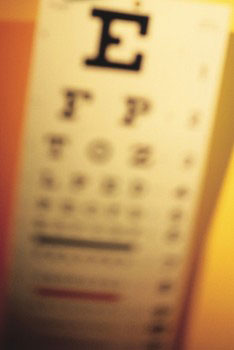When we say that we have blurred vision this usually means that our vision is not sharp thus we are unable to see the fine detail. For example, when we are watching a movie we can make out the actor’s face but unable to make out the eyes or the shape of the mouth of the actor.
Depending on the cause blurred vision can occur suddenly or gradually. It can affect both or only one eye. It can persist or disappear and later recur.
What are the causes?
Some of the common causes that occur in teenagers are:
- Near sightedness ( Myopia)
- This can be corrected using spectacles or contact lens
- Astigmatism
- This can be corrected by spectacles
- Wearing wrong eye glasses
- Eye conditions
- Cataracts
- Severe eye infections
- Conditions that do not involve the eye directly
- Migraine
- Head injury /concussion
- Brain tumour
- Infections example : Meningitis
- Drugs; some examples are :
- Amphetamines
- Some anti-cholinergics/anti-spasmodics
- Corticosteroids
When to seek help?
- If you experience any change in vision, please see a medical professional. The medical professional can evaluate your symptoms and come to a diagnosis.
- You must not take symptoms of blurring of vision lightly even if it occurs only for a short while. Even though the most common cause of blurring of vision in adolescents is short sightedness, there are many serious conditions that could cause blurring of vision.
There are some symptoms that you may experience with blurring of vision that indicate serious problems. If you experience these symptoms please see a doctor immediately
- Eye pain associated with redness
- Loss of central or side-vision
- Poor near-vision
- Poor vision at night
- Fever
- Headache
- Gradual difficulty in walking or speaking
- Memory loss
- Numbness or weakness of upper or lower limbs
- Unexplained weight-loss
What can I do to prevent vision problems ?
Some steps you can take include:
- Have good reading habits :
- Have a good light while reading.
- Do not put your reading material too close to your eyes.
- Rest your eyes after reading or using a computer every 20 – 30 minutes by just looking at far objects preferably green in colour.
- Eat a good balanced nutritious diet rich in vitamin A and antioxidants like green leafy vegetables.
- Do not smoke.
- Wear protective eye glasses or goggles when necessary.
| Last Reviewed | : | 28 August 2020 |
| Writer | : | Dr. Nazrila Hairizan bt. Nasir |
| Accreditor | : | Dr. Nik Rubiah bte. Nik Abdul Rashid |
| Reviewer | : | Dr. Nazhatussima bt. Suhaili |








